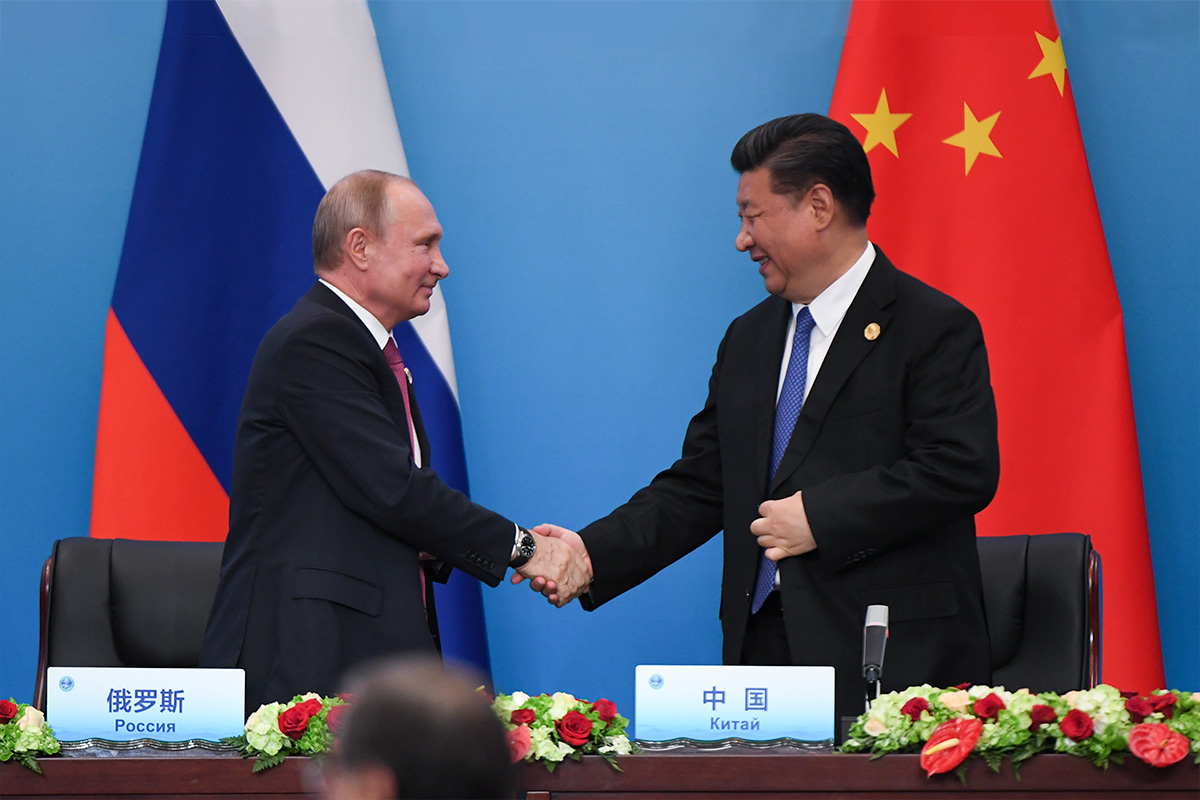On Sunday, Xi and Putin toasted the expansion of the Shanghai Cooperation Organization (SCO), an eight-member bloc designed to coordinate security policies across Asia. The group, which welcomed new members India and Pakistan, as well as the presidents of Iran and Mongolia, pledged to increase cooperation on energy and agriculture and create more favourable conditions on trade and investment.
The carefully choreographed affair contrasted with the discord in Canada, as Trump disavowed the Group of Seven's (G7) joint statement and criticized his host, Prime Minister Justin Trudeau. Even as the scope of the breakdown over US tariffs became clear, Xi was taking the podium to criticize what he said were new forms of “unilateralism” and “protectionism.”
“We oppose the practice of sacrificing other countries’ security for their own absolute security,” Xi told a gathering of the SCO’s heads of state in the Chinese port of Qingdao. “We need to reject selfish, short-sighted and closed policies, uphold the rules of the World Trade Organization (WTO), support the multilateral trading system and build an open world economy.”
China’s state-run media had fun with the contrasting images of the feuding democratic states and the orderly proceedings of the China and Russian-led bloc. The English-language Twitter account of the Communist Party’s People’s Daily newspaper posted photos of a tense scene in La Malbaie, Quebec, and another of Xi and Putin smiling, with the caption, “G7 vs SCO: two meetings on the same day.”
China’s official Xinhua News Agency published a report titled "The Seven Split Nations, The Lone US" on Sunday, saying that the power of the G7 was already diminished and the internal divisions will further reduce its influence.
Regional rivalries
The comparison only goes so far. While the 17-year-old SCO has increasingly extended into trade and economic cooperation, the G7’s central focus is on security. The bloc, which also includes Kazakhstan, Kyrgyzstan, Tajikistan and Uzbekistan, has rallied around opposition of the “three evils” of terrorism, separatism and religious extremism.
The SCO accounts for more than 40 percent of the world’s population versus about 10 percent for the G7.
The bloc has its own tensions lurking below the surface, as China seeks to use the group as a vehicle to promote its Belt and Road Initiative, a vast infrastructure-building program that runs through Russia’s strategic backyard. The addition of South Asian rivals India and Pakistan have also raised questions about the group’s long-term cohesiveness.
Pang Zhongying, a senior fellow at Pangoal, a Beijing-based research institution, said the SCO faced the same underlying tensions as the G7 as governments favour unilateral actions over collective ones.
“The golden era of multilateralism is over, facing a crisis not only in the G7, but also in the SCO,” Pang said. “Even though China’s state-owned media touted the so-called rich fruits of the SCO, only a few tangible achievements were in fact generated from this summit.”
The group demonstrated solidarity in pledging to uphold the Iran nuclear deal, a major source of G7 contention after Trump’s withdrawal last month. Iranian President Hassan Rouhani, whose country has observer status at the SCO, attended the summit, making his first foreign trip since the US’s decision. – Bloomberg
